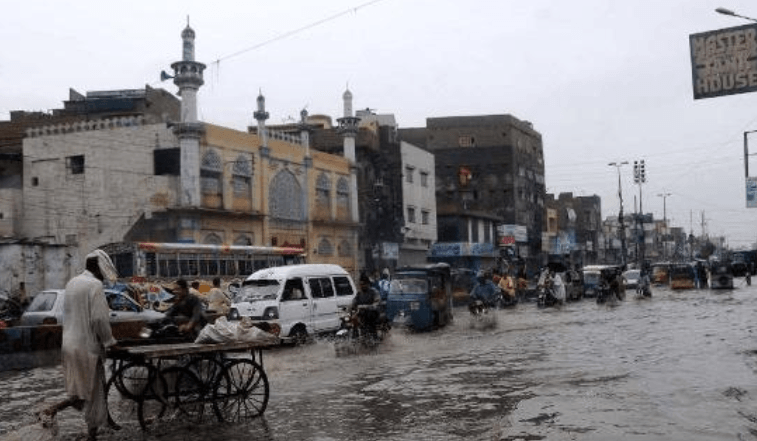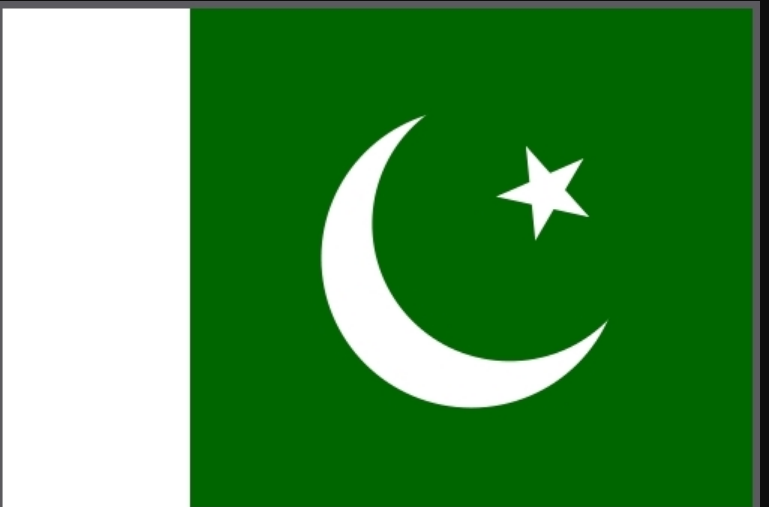By Owei Lakemfa.
The separation of Pakistan from India on August 14, 1947 was quite bloody. Its focus was on religion and a holy, separate state. Unlike India, it had no strong structures, in fact, it had no valid constitution, no independent judiciary and no strong civil leaders aside Muhammed Ali Jinnah. Its first priority was not to build a state, but to grab territories. Four months before its independence, it had been shaken by the decision of the Maharaja of the border state of Kashmir – which had an overwhelming Muslim population – to remain part of India rather than join the new Islamic Republic.
One week after independence, it was revealed that Pakistan had an “Operation Gulmarg” designed to capture Kashmir and Jammu. On October 22, pro-Pakistan militias invaded Kashmir. Jinnah ordered the Pakistani Army to seize the city, but the British under whose joint leadership the Indian and Pakistani military remained, countermanded the order. When Britain relinquished its leadership of the armies, and handed over Kashmir to India in accordance with the decision of its leadership, Indian troops were air-lifted to support the Jammu and Kashmir National Conference, and save the areas from falling to Pakistani forces.
Tragically for Pakistan, its visionary leader who seemed to pull the new country together, died of tuberculosis on September 11, 1948, that is within fourteen months after separation. With that, the country lost balance and until today, remains politically unstable and unsafe.
When Jinnah died, the war was not going on well for Pakistan which by December 31, 1948 – when a ceasefire along the Line of Control was agreed – had lost more territories than it gained while it had only about one third of the priced Kashmir and Jammu. Additionally, in the war, it lost 6,000 persons with 14,000 injured. In contrast, India was able to secure over two thirds of Kashmir and Jammu, lost 1,500 personnel with 3,500 injured.
Pakistan until this day, remains fixated on winning that war. The North and West Kashmir controlled by Pakistan has a three million population while the parts controlled by India have some nine million persons with the Vaishno Devi Temple in Jammu being visited by 10 million pilgrims annually.
Three years after Jinnah passed way, the founding Prime Minister, Liaquat Ali Khan was assassinated. In 1958, the Governor General/ President, Iskander Mirza was overthrown by General Ayub Khan. Following Pakistan’s defeat in the 1965 war with India, he was replaced by General Yahya Khan.
For the first time in its 32-year history, Pakistan organized elections in 1970. It was won by the Awami League led by Sheikh Mujeerbur Rahman leader of East Pakistan who had complained against a unitary system of government. However, General Khan refused to hand over power, rather he detained the winner and his supporters leading to a war of liberation in which India backed East Pakistan. Over one million people were killed in the war. A frustrated Pakistan attacked India leading to the routing of its forces by the later and independence by East Pakistan which renamed itself Bangladesh.
General Khan was forced to resign and the loser of the elections, Zulfikar Ali Bhuto took over. A democratic government was put in place under Bhuto from 1972 -77 when the military led by General Zia-ul-Haq overthrew him. After his release from detention, Bhuto began a tour of the country drawing huge crowds. The military seized him, he was accused of killing a political opponent and on April 4, 1979, the regime hanged him at the Central Jail, Rawalpindi. His last words were: “Oh Lord, help me for… I am innocent”
General Zia, a stone-faced dictator held Pakistan hostage until he was killed in an air crash and Bhuto’s daughter, Benazir was elected Prime Minister. She was in turn overthrown by General Pervez Musharaf in 1999. Eight years later, Benazir who was attempting a comeback to power, was assassinated but her party, the Pakistani Peoples Party was elected with Yousaf Raza Gillan as Prime Minister. Under the threat of impeachment, General Musharaf resigned as President on August 18, 2008 and was replaced by Asir Ali Zardari. Gillani was also forced to resign as Prime Minister in June 2012.
In the latest of the long lineage of political casualties, Nawaz Sharif who in 2013 was elected Prime Minister for the third time, was exposed in the 2016 Panama Papers as hiding millions of dollars in foreign investments especially in the United Kingdom. It was also revealed that even as Prime Minister of a sovereign country, he had employment in the Capital Fze Company, based in Dubai. On July 21, 2017, the Supreme Court disqualified him for life from political office and was replaced the following month by his protégé, Shahid Khaqam Abbasi.
During the Cold war, while India maintained neutrality and independence by assisting to establish the Non Aligned Movement, Pakistan preferred to be a satellite of the United States. In being loyal, it was convinced by the later to help build, train, fund and provide a base for Muslim youths across the world to fight the Afghanistan Government which was supported by the defunct Union of Soviet Socialist Republics. The youths were mobilized based on the propaganda that the Afghan government was atheist and that it was the duty of Muslim youths to rescue that country from unbelievers. This international Muslim youth brigade became known as the Mujahideen. When Soviet troops were invited by the Afghan government in 1979 to check the ripening insurgency, the Mujahideen, quartered in Pakistan, poured in and in nine years, forced the Soviet troops to withdraw and the Islamists, later known as the Taliban took over Afghanistan.
It was from the Mujahideen, Osama Bin Laden and other young Islamic radicals emerged. It was from its loins, Al Qaeda and a number of international terrorist groups emerged. They are also the core of the Pakistani Taliban, the Islamic State (ISIS) and other groups which their former international benefactors now call “Terrorists” Pakistan, apart from the continuous bloodletting amongst groups like the Shitte and Sunni, has become the cesspool of terrorist organisations including the Pakistani brand of Talibanism. In one of its most infamous acts, the latter on October 9, 2012, shot the then 15-year old Malala Yousafzau for allegedly advocating girl-child education.
Perhaps if Ali Jinnah knew 70 years ago, that his beloved Pakistan would turn out to be the politically unstable, insecure, terror-ridden country, gang-raped repeatedly by a rapacious and greedy military and a parochial political class, he might not have demanded separation.


